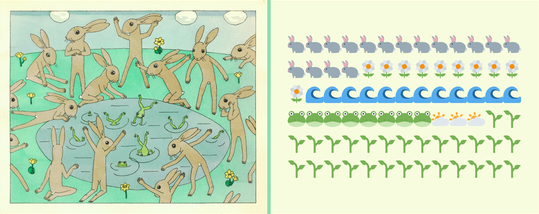Projektleitung
Prof. Dr. Felicitas Macgilchrist
Institut für Pädagogik (» Postanschrift)
RECOMPOSE
Recomposing the Blackbox
Critical Digital Education through AI-Powered Music Generation
At the heart of many developments in educational technology (edtech) are products utilising artificial intelligence technologies. Welcomed by some as a solution to problems in schools (e.g., low student motivation, insufficient personalisation, socio-emotional challenges, burnt-out teachers), AI, in particular ‘generative AI’, is critiqued by others as a threat to the human interactions at the heart of education (e.g. increasing bias, blocking explorative learning, reducing critical thinking and thus enabling fascism). Biases are particularly strong when legitimation is based on notions of community and humanity, for instance, in arts and music education. In this binary discussion (solutions/threats), a ‘third position’ is crucial, which combines design and situated analysis. An exciting body of work is emerging in this area, but there remains a lack of research that combines social, cultural and technical sciences to co-develop novel AI systems and investigate their use in pedagogical settings.
RECOMPOSE develops this third position by developing an AI-powered platform architecture specifically to foster students’ and teachers’ critical AI literacies. Here, ‘critical AI literacies’ refers to an increased understanding of AI technologies that (i) demystifies the mechanics, (ii) identifies societal (political, ethical, mental health, etc.) implications, and (iii) thus enables students and teachers to make informed decisions about how to use these technologies for which purposes. Put simply: If young people have fun with AI while learning how, e.g., bias is generated as music is generated, they develop a sense of how decisions are made, and can explore the implications of these decisions for societal cohesion, e.g., gender, race, class, and other intersecting dimensions of diversity. The key is for young people to transfer this knowledge to other areas, asking how high-stakes decisions (e.g., grading, policing, journalism) are shaped by AI.

In RECOMPOSE, we develop concepts and new technologies to support young people to reflexively adapt (rather than unquestioningly follow) AI-systems. The team aims to (i) analyse the process of developing and deploying novel explainable AI systems for schooling, (ii) understand the mechanics as well as the musical and societal implications of music generation models, (iii) extrapolate from the focal case to identify the broader social, cultural, political, ethical, health-related and economic implications of AI in education (AIEd), and (iv) make the technologies available to the international research community. Overall, RECOMPOSE hopes to contribute to scholarly understanding of key issues in critical digital education.
We bring educational science, music education and informatics to ask:
How are critical AI literacies fostered by developing an explainable generative AI system for schooling,
and which implications follow for music education and education more broadly in the 21st century?
With a design-based research (DBR) methodology, RECOMPOSE zooms in on music education to enable an in-depth analysis that combines technical, musical, cultural, social, ethical, economic, political, etc. dimensions. The focal case develops a novel platform architecture that generates music from prompts—similar to Suno, Udio, AIVA, and other widely used commercial products—yet which enables students to understand and manipulate the decision-making processes within generative music models. It aims to provide a semblance of transparency into the typically opaque ‘black box’ of text-to-music generation systems.
In this sense, ‘critical digital education’ is not about highlighting problems, but about building alternatives to enable more participatory and equitable futures.
Team: Prof. Dr. Felicitas Macgilchrist, Prof. Dr. Jorge Marx Gómez, Prof. Dr. Mario Dunkel
Duration: 2026-2029
Funding: Potenziale strategisch entfalten (PSE). Lower Saxony Ministry of Science and Culture

